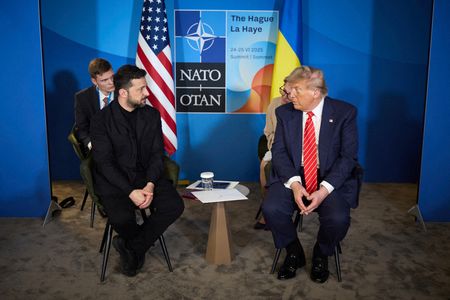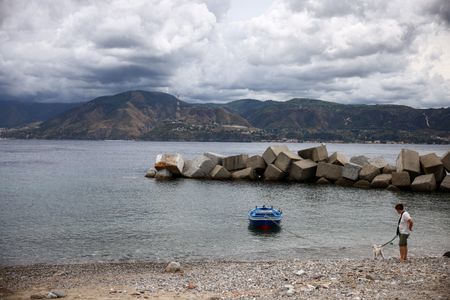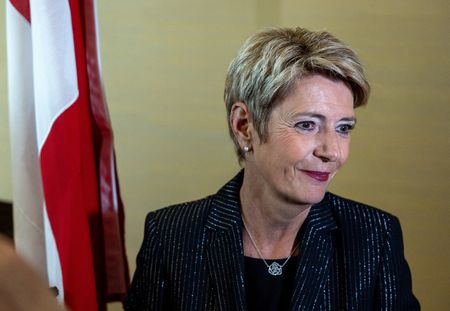By Felix Light
TBILISI (Reuters) -A Georgian court on Wednesday sentenced journalist Mzia Amaglobeli to two years in prison for slapping a police chief in a case seen by activists as symbolic of diminishing freedoms in the South Caucasus country.
Amaglobeli, a founder of two independent media outlets, was convicted by a court in Batumi, Georgia’s second city, for slapping the official during a protest in October.
A video of the incident, published by Georgian media, shows her engaged in heated conversation with the police chief, Irakli Dgebuadze, before slapping him lightly across the face.
Her defenders say it was not serious enough to constitute assault under Georgian law.
The New York-based Committee to Protect Journalists called the sentence “outrageous”.
In court this week, Amaglobeli called the charges “malicious” and “insulting”, according to Georgian media.
Unexpectedly, the judge on Wednesday downgraded the charge from assaulting a police officer to using violence against a protector of public order, which carries a lighter sentence.
Georgia, previously one of the Soviet Union’s most democratic successor states after winning independence in 1991, has been roiled by more than a year of protests against the ruling Georgian Dream party, which critics say is steering the country in an authoritarian and pro-Russian direction.
Amaglobeli’s allies say her treatment contrasts with the failure to prosecute those behind a violent crackdown on protesters last year.
A joint statement by 24 Western diplomatic missions including European Union countries, Canada and Britain condemned Amaglobeli’s sentencing and the “escalating intimidation of journalists”.
Among those present in the courtroom were diplomats from the European Union and Germany, France and Poland, as well as former Georgian President Salome Zourabichvili, a critic of the ruling party.
Georgians have taken to the streets nightly since November to voice opposition to a government decision to halt accession talks to the European Union, a reversal of a longstanding national goal in the country of 3.7 million.
The protests have shrunk in size in recent months and most of the country’s prominent opposition leaders have been jailed for refusing to appear in front of a parliamentary commission they have dismissed as a front for pro-government propaganda.
(Reporting by Felix Light; Editing by Mark Trevelyan)








